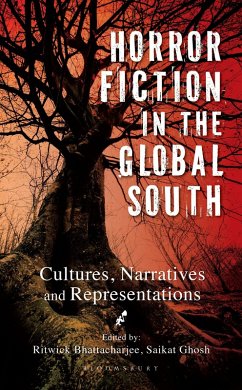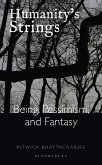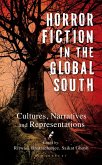Horror Fiction in the Global South: Cultures, Narratives, and Representations believes that the experiences of horror are not just individual but also/simultaneously cultural. Within this understanding, literary productions become rather potent sites for the relation of such experiences both on the individual and the cultural front. It's not coincidental, then, that either William Blatty's The Exorcist or Gabriel Garcia Marquez's One Hundred Years of Solitude become archetypes of the re-presentations of the way horror affects individuals placed inside different cultures. Such an affectation, though, is but a beginning of the ways in which the supernatural interacts with the human and gives rise to horror. Considering that almost all aspects of what we now designate as the Global North, and its concomitant, the Global South - political, historical, social, economic, cultural, and so on - function as different paradigms, the experiences of horror and their telling in stories become functionally different as well. Added to this are the variations that one nation or culture of the east has from another.
The present anthology of essays, in such a scheme of things, seeks to examine and demonstrate these cultural differences embedded in the impact that figures of horror and specters of the night have on the narrative imagination of storytellers from the Global South. If horror has an everyday presence in the phenomenal reality that Southern cultures subscribe to, it demands alternative phenomenology. The anthology allows scholars and connoisseurs of Horror to explore theoretical possibilities that may help address precisely such a need.
The present anthology of essays, in such a scheme of things, seeks to examine and demonstrate these cultural differences embedded in the impact that figures of horror and specters of the night have on the narrative imagination of storytellers from the Global South. If horror has an everyday presence in the phenomenal reality that Southern cultures subscribe to, it demands alternative phenomenology. The anthology allows scholars and connoisseurs of Horror to explore theoretical possibilities that may help address precisely such a need.









